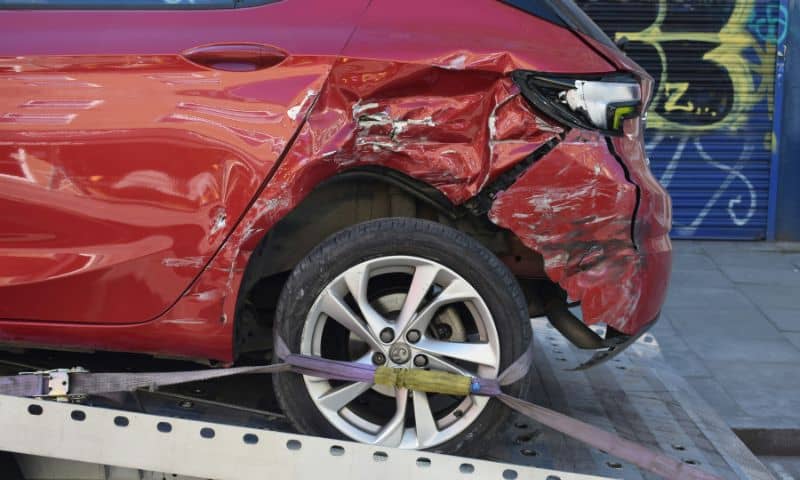Car Accident Aggravated Pre-Existing Condition: Maximizing Your Settlement

If a car accident made your pre-existing injury or condition way worse, the insurance companies are going to do everything they can to lowball or deny your claim. Their tactics for placing blame on your pre-existing condition rather than the accident’s impact are endless. But you deserve compensation when negligence aggravates a prior health issue.
As New York personal injury lawyers, we know exactly how to build iron-clad cases that prove the accident was the cause of your condition’s aggravation. From documenting every detail to combating bad-faith insurance practices, we’ll maximize your settlement value while protecting your rights. Keep reading to learn our strategies for beating the insurance giants in their own game.
How Car Accidents Can Aggravate Pre-Existing Conditions
The forces involved in even a relatively minor auto accident can spell disaster for those with underlying health conditions. Whiplash from rear-end collisions frequently aggravates previous back/neck injuries. The sudden impact can herniate discs, pinch nerves, and worsen chronic pain.
Individuals with pre-existing conditions like arthritis or joint problems often find their mobility severely compromised post-accident. Traumatic brain injuries and post-concussion syndrome can easily be triggered or exacerbated.
In many ways, these types of injuries are the most challenging personal injury cases – the defense will argue your current symptoms stem from the original pre-existing condition rather than being caused or worsened by the crash. That’s why documentation is crucial.
Documenting the Connection Between the Accident and Aggravated Condition
The key to a successful aggravation claim? Proving the accident was the proximate cause of your worsening symptoms and condition. This evidence will make or break your case.
First, always seek immediate medical attention after an accident, even if you think you’re ok – many injuries can take days or weeks to manifest. Having an official record tying the timing of your symptoms to the crash bolsters your claim.
Also, thoroughly document all diagnostic testing, imaging scans, doctors’ notes, and expert opinions. These will serve as powerful evidence linking your current condition’s aggravation directly to the trauma of the accident.
Details like eyewitness accounts describing your lack of symptoms before the accident versus your obvious discomfort immediately after can also strengthen your case file.
Overcoming Insurance Company Tactics to Limit Liability
Here’s the harsh reality: Insurers are highly incentivized to lowball or outright deny injury claims stemming from aggravated pre-existing conditions. Their goal is to minimize payouts and protect their bottom line at all costs.
Two of their favorite tactics are invoking the ” eggshell plaintiff” rule and accusing you of failing to “mitigate damages.”
The eggshell plaintiff doctrine essentially argues that they should only have to compensate for injuries caused to someone of perfect health – not factor in pre-existing conditions that make you more susceptible to aggravated injuries. It’s an underhanded ploy to reduce what they owe you.
Similarly, expect accusations that you failed to properly mitigate damages by getting prompt medical treatment or following your doctor’s care regimen to the letter. These are all blatant attempts to limit their liability and settlement costs, which an experienced personal injury litigator can deftly counter.
Calculating Compensation for Aggravated Pre-Existing Conditions
With the right legal advocacy and evidence, you may be entitled to compensation for:
- All related current and future medical expenses
- Lost wages from time away from work
- Loss of future earning capacity if permanently disabled
- Non-economic damages like pain, suffering, and loss of enjoyment of life
- Possible punitive damages depending on the circumstances
An attorney seasoned in pre-existing condition claims knows how to accurately value the total costs – both economic and non-economic – of having your condition severely exacerbated by the accident’s trauma.
Expect a thorough review of your medical history, workplace records, and documented living circumstances to appropriately calculate what constitutes maximum fair compensation.
Maximizing Your Chances of a Successful Injury Claim
Beyond just the merit of your case lies your own role in safeguarding a positive outcome.
A few key steps can significantly improve your chances:
- Work only with a personal injury attorney focused on auto accidents who has demonstrated success in securing settlements for aggravated pre-existing conditions. An inexperienced lawyer may undervalue your claim or bungle key evidence.
- Follow your treatment plan and providers’ recommendations to the letter. Missing appointments, neglecting medications, or disregarding doctor’s orders will instantly undermine your case. The insurance company will argue you failed to mitigate damages.
- Be cautious about what you post on social media – anything contradicting your claims of injury or its impacts could tank your case. Even a harmless vacation photo may be twisted by defense lawyers to argue your injuries aren’t as severe as claimed.
- Additionally, don’t provide any statements or sign anything without your attorney present. You could inadvertently jeopardize your entire claim in a recorded statement.
When to Consider Litigation for a Fair Settlement
In an ideal scenario, your attorney can leverage the strength of your documentation and evidence to negotiate a substantial out-of-court settlement with the insurance company. However, if the insurer simply refuses to make a fair offer despite your solid claim, filing a personal injury lawsuit may become necessary.
This is when having an accomplished courtroom litigator in your corner proves invaluable. Your attorney can compel far more evidence through the discovery process, depose witnesses, and employ expert testimony to demonstrate the clear aggravation of your pre-existing condition. A favorable verdict or the threat of a huge judgment at trial often prompts a reasonable settlement.
Of course, this decision hinges on carefully weighing the potential rewards against the investment of time and legal fees for a prolonged court battle. Your lawyer’s experience can provide critical guidance on the ideal path forward.
Why Held, Held & Held Should Be Your Trusted Legal Partners
Dealing with an aggravated pre-existing condition due to someone else’s negligence is difficult enough without worrying about being lowballed or denied fair compensation. That’s where the advocacy of our personal injury team at Held, Held & Held can make all the difference.
For over 50 years, our firm has been a trusted name in the Brooklyn community – fighting hard for car accident victims just like you while treating each client like family. Whether negotiating a maximum settlement or taking your case to trial, our attorneys bring a level of hard-nosed experience rarely seen in this field.
If an auto accident has left you struggling with worsened symptoms or an exacerbated condition, don’t go it alone against the insurance companies’ army of lawyers and adjusters.
Let the seasoned pros at Held, Held & Held stand in your corner as we pursue the compensation you deserve. Reach out today for a free, no-obligation consultation about your case.



